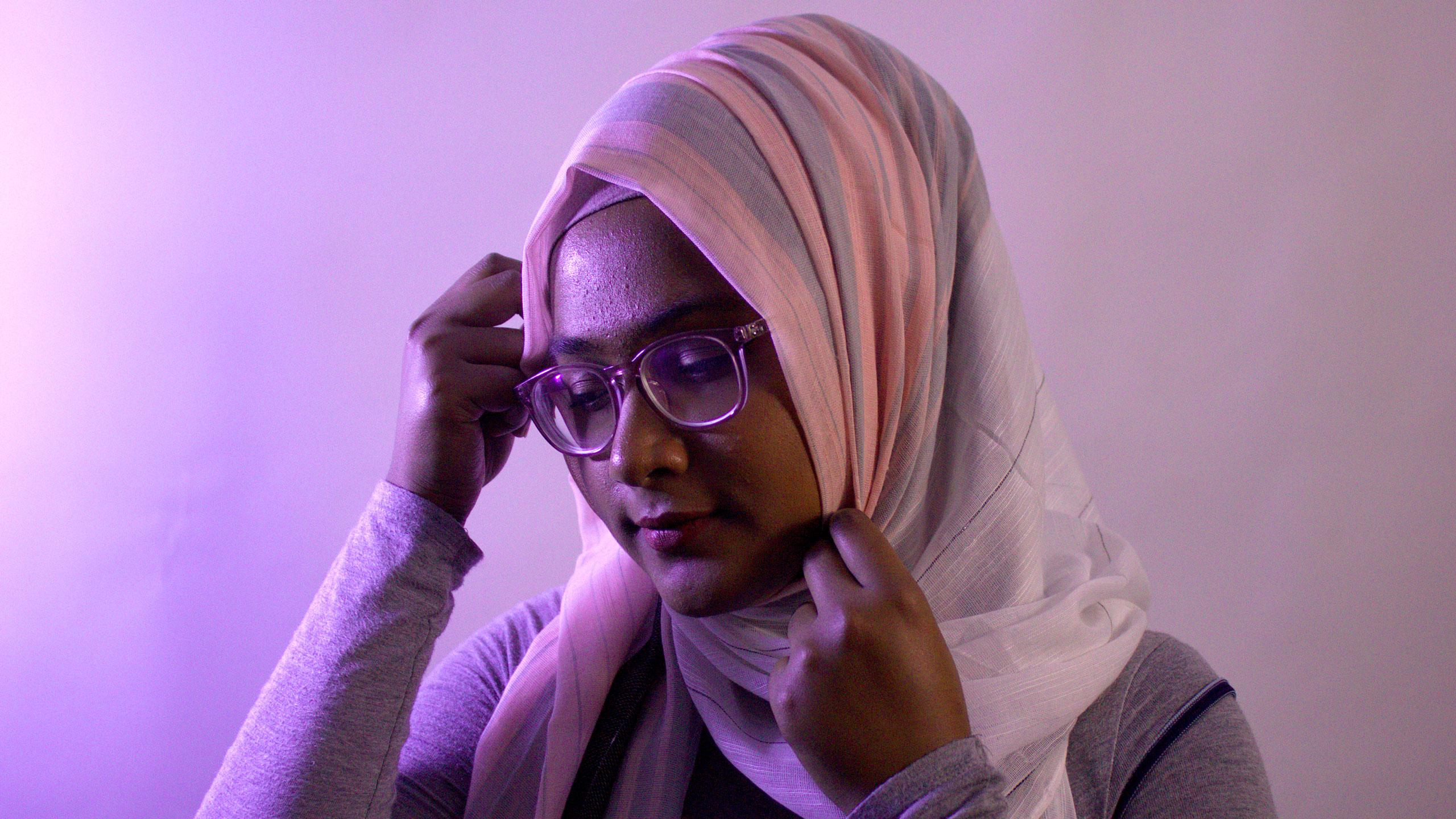MARIAM NOUSER WRITES ABOUT MARRIAGE IN UNIVERSITY AND THE STIGMA FROM ALL DIRECTIONS
I met Omar at a local mosque in Oakville. It was May 2016, and despite attending the same university and similar programs, we had never spoken face-to-face. At some point during our second meeting, I was certain I wanted to tell my father that I met someone I could envision a future with. But instead of being happy, I was nervous.
As I am my dad’s first child and only daughter, he can be quite overprotective of me. Living in British Columbia, he is a classic Egyptian father—he urged me to study engineering and checked in on me several times a day. Some might consider him to be overbearing. I chickened out of telling him about Omar and asked my mom to speak with him on my behalf. Although my parents are divorced, they had maintained a decent friendship.
My mom and I were sitting in a mosque parking lot mid-afternoon on a sunny summer day. She texted my dad saying I wanted to introduce him to a boy I had met. Then there was silence.
He sent a short message back, followed by a phone call, during which he started to yell. He said our relationship was “unacceptable” and “un-Islamic.” He also said marriage was out of the question and I shouldn’t be thinking about it since I was still in school. “You won’t finish your studies if you get married,” he told me.
It was unlike my dad to follow cultural stigma instead of our Islamic principles. Despite my numerous attempts to change his mind for three months, he would not budge.

For many young people, there is shame attached to getting married before finishing post-secondary education. Parents and elders often feel that marriage could discourage or distract the student from finishing their studies, while others think their child is still too young. Experts say parents can put pressure on their children to choose between their education and relationship when, in reality, they can pursue both. Marriage is not in the cards for many young people, but those who choose to pursue it face obstacles from family and society alike.
According to a 2018 study based in Nigeria from an international humanities journal, there is a direct correlation between a married woman’s success in school and the support she receives at home. A 2018 study from the University of Guelph and Manitoba involving students from eight Ontario universities looked at the consequences for married mature students in situations where one person attended university. Couples in the study reported a decreased desire for intimacy and said they had less time to spend together.
Another aspect is on the parents’ end. Sheikh Abdalla Idris Ali, senior community and religious advisor at the Islamic Society of North America in Canada, says many of those who seek his advice about marriage are reluctant to let their kids get married while they are still in university. Ali says parent reluctance can stem from different fears, such as their child becoming distracted from their education, having children before graduating or their child’s inability to live on their own.

Lauren Sciacchitano was about to start her undergraduate degree at Ryerson when she got married in the summer of 2016. She went from being independent to having others depend on her.
The now third-year medical physics student had to take time off her education to save money for her degree. But she had to consider her husband, as he tried to establish his career. The first year of marriage can be tough for many newly-wed couples, and adding education and a career can cause further complications.
In addition, she described the cultural differences between her and her husband as a “cultural shock.” As being someone who was not raised in a household that placed the utmost value on a husband’s career, Sciacchitano was not prepared for that aspect of her husband’s Italian culture. “I manage it now by leaving the room or changing the topic if it gets to be too much for me,” said Sciacchitano.
In addition to placing so much focus on her husband, she found herself constantly dodging the question: “When are you having kids?” She hears the question not only from her in-laws, but her husband too.
While she is confident that her marriage is not in danger, balancing school and marriage is a daunting task. Sciacchitano says she is only “confident in her ability to balance marriage and school about 20 per cent of the time, and those times are usually when we’re on some sort of school break.”
The 2018 Ontario universities study also found that married mature students found conflict can arise from having new roles or expectations, including those around divisions of labour at home.
Ali advises students who are getting married in university to sit down together and plan out how they’ll manage their finances, household duties and other responsibilities. He says having a successful marriage while in university is “not impossible”—but it does require some planning.

Before beginning her academic career at Ryerson, Emma Lee*, now 23, studied in England for 10 months. Two months into her nursing program in England, she was raped.
Months later, Lee went to the doctor for what she thought was irritable bowel syndrome. That’s when she discovered she was pregnant. As someone with irregular periods due to being underweight, the lack of a period wasn’t out of the ordinary for her.
“I was absolutely shell-shocked [that I was pregnant],” recalls Lee. “I was living alone in another continent, away from my parents.” Lee did not have the heart to tell her parents about what had happened. “I felt alone, useless and way too young to have this much responsibility.”
Lee decided to leave school while keeping her situation a secret. She did not tell her traditional parents because she didn’t want to deal with their reaction. Despite her desire to get an abortion, it was legally too late to do so under British laws. Eventually, Lee gave birth to a healthy baby via C-section. As a young mom, she wanted to do what was best for her child, and she gave the baby up for adoption.
In 2013, the pregnancy rate of women ages 15 to 19 in Toronto was around two per cent, according to Statistics Canada. The number is close to the Ontario average, which is half a percent higher.
A research article from Sociological Research Online titled “Teenage Mothers, Stigma and Their ‘Presentations of Self’” says teenage mothering is often associated by society to welfare dependency, promiscuity and irresponsibility. As a result, young mothers report experiences of stigma and discrimination.
Now, Lee is in a common-law marriage during her first year at Ryerson as a nursing student. Lee, as a mother figure to her partner’s three children, says she’s only made it this far because of her partner’s unyielding support. She says that they haven’t had a major fight in their first four years of marriage. With her partner doing most of the domestic chores, Lee is able to focus on school. She is now on track to graduate in two years and become a registered nurse.
Rebecca Cobb, associate professor and associate chair for the undergraduate psychology program at Simon Fraser University, says support for married students is crucial.
A 2012 study, which discusses the role of “autonomy support” from parents, friends and partners, concluded that a student’s wellbeing is highest when their romantic partner is perceived as highly supportive.
Cobb echoes this. When parents aren’t supportive, the support of a partner is especially critical, she says.
The 2018 Ontario universities study found positive results for married students as well. They reported higher self-esteem and increased bonding with their partner. Their partners were also able to provide more emotional support.

Eventually, my dad grew to be very fond of Omar, and permitted him to ask for my hand in marriage after a few months of my nagging. By the fall of 2017, I was just over a year into my engagement. Nine months later, on June 23, 2018, we had our wedding.
However, my dad was adamant about us not getting married before I finished my undergraduate degree and because of this, he did not attend our wedding.
While I was delighted to be marrying the love of my life, I was also heartbroken that my father wouldn’t be there. In Islamic tradition, the father is beside his daughter to give her hand to the groom, and represents her in the marriage.
As I greeted guests, the thought of, “What if someone notices my dad isn’t here?” was taking over my brain.
After dhuhr prayer, they announced that our katb el-kitab, wedding ceremony in English, was going to start. I was pleased that people were overjoyed for us nonetheless. The imam didn’t make it obvious that my father wasn’t there.
A few simple passages were said, followed by a beautiful lecture. That’s when the wave of emotions hit me. Now, part of me still grieves about the fact that my father was not at my wedding and didn’t support my marriage. But despite all we went through, my husband and I have now been happily married for over a year.
*Name has been changed for privacy reasons.












Tahbit Chowdhury
Mariam Nouser’s piece covered this topic well. Hopefully, this will be turned into a series of articles. It would help explore the range of possibilities that are available to young adults trying to navigate an incredibly complex time period. Each person mentioned in the article deserves a whole article themselves. Looking forward to more on this. Thanks!